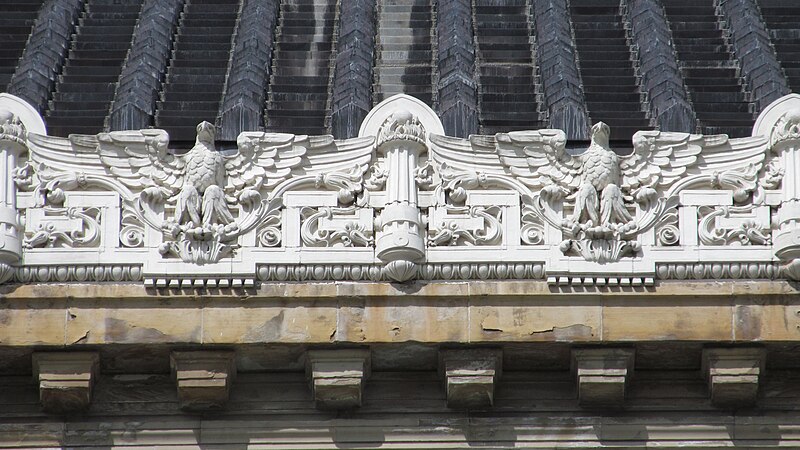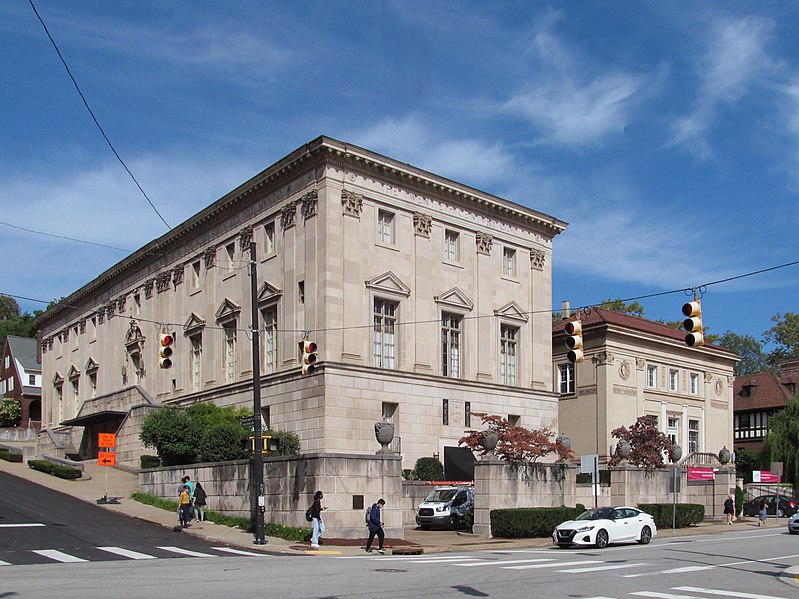
Colorful paint adds a bit of whimsy to a small apartment building in Shadyside.

Built for a prosperous doctor, this house was designed by Longfellow and Harlow (soon to be Longfellow, Alden, and Harlow), and shows the restrained good taste that would be the hallmark of the firm’s work for decades. Although it is technically on the Squirrel Hill side of the street, socially this house forms part of the Shadyside millionaires’ row along Fifth Avenue.

Above, the distinctive grotesque eruption at the pinnacle of the pyramid roof. Below, the alternating eagles and torches of the cornice.


Two great cultural institutions that vacated their landmark buildings for different reasons. The Twentieth Century Club, Pittsburgh’s premier women’s club, fell on hard times like most clubs in our antisocial twenty-first century. The Historical Society of Western Pennsylvania, on the other hand, prospered and moved its collection to the Heinz History Center in the Strip. Old Pa Pitt is delighted to see that the old Historical Society building will soon be a Latin American Cultural Center, so that once again it will be a cultural landmark in Oakland.

The Twentieth Century Club was designed by the prolific Benno Janssen.

The Historical Society of Western Pennsylvania was by the firm of Ingham and Boyd.

This Second Empire mansion had a narrow escape: the third floor burned out in 1987, and the owner died the next year, leaving the house a derelict hulk. It was rescued from demolition at the last minute by serial restorationist Joedda Sampson, who painted it in her trademark polychrome style; it has since passed to other owners, whose pristine white also works well with the design. The house was built in 1871; Frederick Osterling worked on early-twentieth-century renovations and additions.




A Tudor house in Schenley Farms recedes into the woods, looking more and more like something from a fairy tale.
Addendum: According to a Google Maps user who has documented most of the houses in Schenley Farms, this house was designed by Maximilian Nirdlinger in 1911 for E. H. Kingsley.